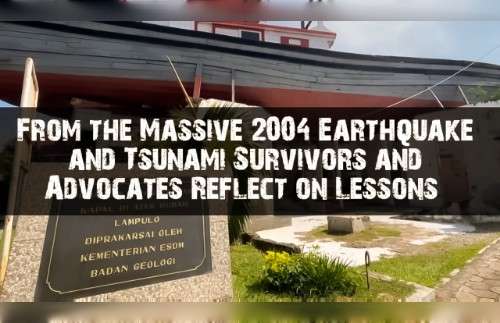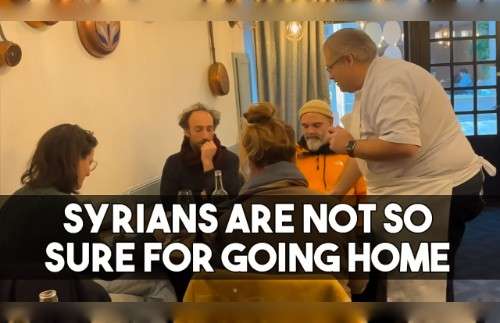Iman Muttaqin Yusof/Kuala Lumpur

Tuanku Muhriz Tuanku Munawir, chairman of the Council of Rulers (front center), walks with King Sultan Abdullah Sultan Ahmad Shah (front left) and other rulers at the National Palace in Kuala Lumpur, Nov. 30, 2022.Handout photo/National Palace Office Via RFA
Malaysia’s Council of Rulers called Wednesday on politicians to stop stoking hatred in the multireligious and multiethnic country, amid an increase in hate speech following the formation of a new and diverse “unity government.”
Tuanku Muhriz Tuanku Munawir, the council chairman and one of the nine rulers in the Muslim-majority nation, put out the message after an Islamic party in the opposition accused Prime Minister Anwar Ibrahim of being an Israeli agent and one of the ruling parties of promoting Islamophobia.
“I hope that there will be no more leaders who raise racial or religious issues with the purpose of incitement,” Tuanku Muhriz said in a speech after chairing a two-day meeting of the Council of Rulers at the National Palace in Kuala Lumpur.
“I call on the new government to foster a spirit of togetherness among multireligious, multiracial, and multicultural Malaysians.”
The rulers are considered protectors of the people and hold mostly ceremonial roles.
The council convenes at least once a year to get an overview from the prime minister about the situation in the country. This body of sultans and governors, who represent Malaysia’s 13 states, also selects the king on a five-year, rotating basis.
This was the rulers’ second meeting this year since June. It came after Anwar was appointed prime minister last week.
The Nov. 19 general election in Malaysia resulted in a hung parliament, where no party or coalition secured a majority to form a government.
Anwar’s multiracial Pakatan Harapan bloc won the most parliamentary seats, 82. Muhyiddin Yassin’s Perikatan Nasional bloc, which includes the fundamentalist Malaysian Islamic Party (PAS), followed close behind with 73.
The Barisan Nasional bloc, which had led the previous government, was routed at the polls. But it allied with Anwar to form a “unity government” when Malaysia’s king appointed him as PM to break the electoral impasse.
PAS has been taking digs at Anwar’s Pakatan bloc since the new ruling coalition came to power on Nov. 24, analysts say.
Perikatan leader Muhyiddin had said he did not want to be part of a “unity government,” which the king preferred and recommended.
Earlier this week, while apparently responding to criticism for running a racially divisive campaign, PAS President Abdul Hadi Awang accused the Democratic Action Party, a Pakatan constituent party, of Islamophobia.
“They [DAP] openly slander Islam, especially PAS,” Hadi Awang said in a Facebook post Monday.
“PAS has become DAP’s target due to PAS’s progress in the 15th general election in acquiring the highest number of parliamentary seats of all individual parties,” he added.
DAP’s members are largely ethnic Chinese. Some people in the country’s Malay majority distrust the Democratic Action Party, which they see as putting the interests of Malaysian Chinese above those of Malays.
Police are also investigating a PAS lawmaker, Hassan Saad, over allegedly defamatory claims he made alleging that the prime minister was an Israeli agent.
Meanwhile, there has been an uptick in hateful posts on social media since the election produced a hung parliament.
Several online posts implied that race riots, which occurred in 1969, may happen again if DAP became part of the government.
Tensions over race and religion and economic resentment are a persistent theme in Malaysian society. They reached their nadir in May 1969 when communal violence killed nearly 200 people, many of them ethnic Chinese, according to official figures.
The Malaysian Communications and Multimedia Commission (MCMC) and the police have summoned the management of TikTok, a short-video platform, to explain these incendiary videos about 1969.
“Spreading such content is an irresponsible act which may cause disharmony, division, feelings of hatred or prejudice in matters related with race and religion,” the commission said in a statement Tuesday.
Such actions are a criminal offense, the commission added.
If the current situation continues, it could disrupt Anwar’s ability to govern, political analyst Azmi Hassan said.
“We don’t need this kind of sideshow. I think it’s very timely the advice the Council of Rulers gave that this type of campaign … harping on race and religion should stop,” Azmi, a senior fellow at the Nusantara Academy for Strategic Research, told BenarNews.
“Mostly, the blame lies on Perikatan leaders, who they think they should have formed the government. If they think they have the majority, they should wait until Dec. 19, when Anwar proposes the vote of confidence in the parliament.”
Azmi applauded DAP’s response to provocations by the Islamic party.
“DAP in this … they have been on the receiving end,” Azmi said.
“And they have been restrained, which is a very smart move.”
Another analyst, Jayum A. Jawan, noted that racial tensions have been part of the Malaysian fabric for a long time.
“It will take a lot of effort to undo the damage done over decades,” Jayum a political science professor at Universiti Putra of Malaysia, told BenarNews.
“However, we need to start somewhere. It has been five decades of racially inspired action and relations.”
Copyright ©2015-2022, BenarNews. Used with the permission of BenarNews.













